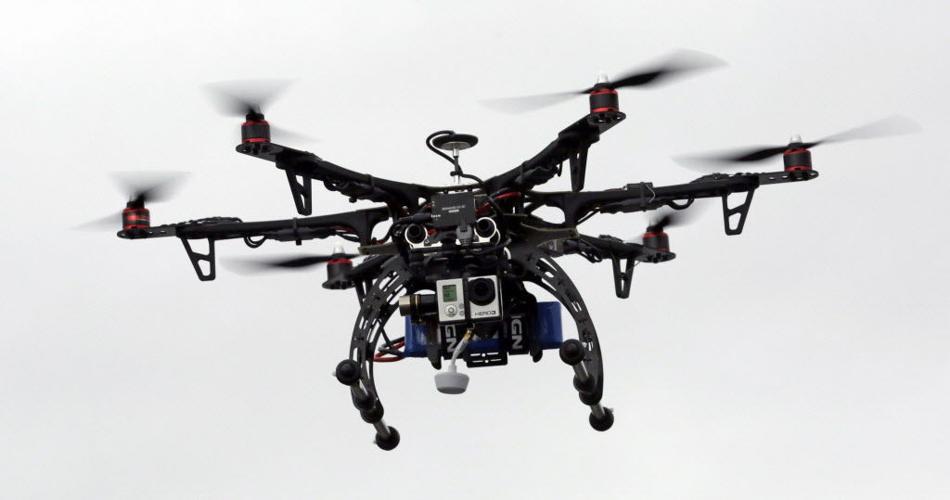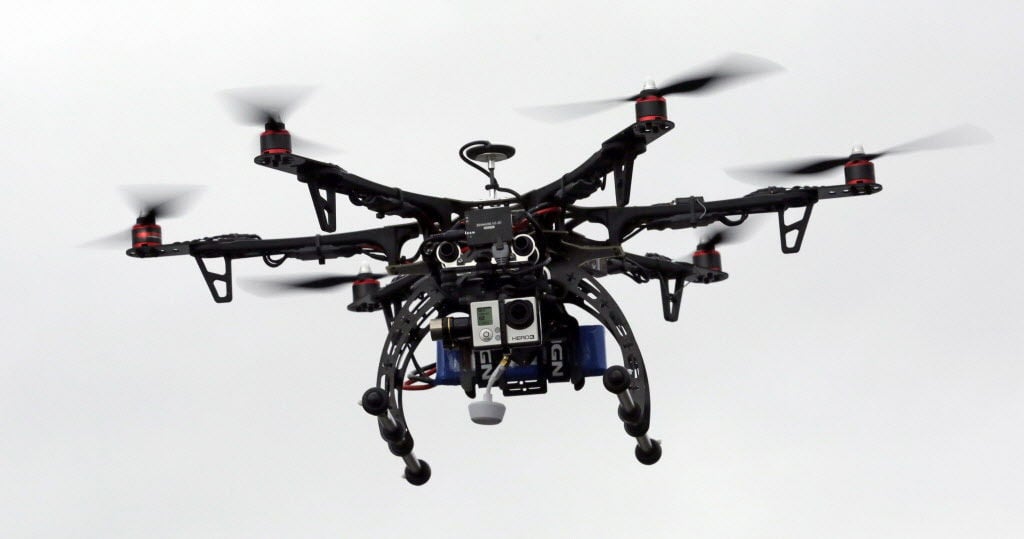PHOENIX — Saying privacy could be in danger, a state lawmaker wants to outlaw using a drone to take photographs or videos while flying over someone else’s property.
The proposal by Rep. Sonny Borrelli, R-Lake Havasu City, would make it a misdemeanor to use an unmanned aircraft to “intentionally photograph, electronically record, collect information, conduct surveillance or gather evidence” over private property without first getting written consent of the owner.
And if the target of the surveillance were a “critical facility” like a refinery, chemical plant or nuclear generating station, the violator could wind up in prison.
Borrelli conceded, though, he’s not quite sure he wants to push HB 2073 into law.
On one hand, he wants to see whether existing laws cover the things he’s trying to protect.
But he also wants to be sure his legislation does not have unintended consequences.
“I don’t want to make some teenager a felon because he’s got a toy he’s flying around spying on the neighbor’s daughter,” Borrelli said.
His legislation comes as all levels of government are playing catch-up to figure how to regulate what has become one of the most popular high-tech devices of recent years.
The Federal Aviation Agency is now requiring registration of any drone that weighs at least 8.8 ounces including any payload like an onboard camera. And there are other rules like staying below 400 feet, staying away from airports and keeping the drone in sight.
But none of that deals with the issue of privacy.
That vacuum now has various Arizona cities looking at their own rules.
Paradise Valley already has gone forward with rules that, like Borrelli’s legislation, ban flying over private property without permission. But that ordinance also requires people to obtain permits to fly over public property as well as for commercial use.
Borrelli said some of that goes too far.
“What if there’s a parade and a newspaper wants to fly over the parade and just film it?” he asked.
“Is that illegal?” Borrelli continued. “Should it be?”
Media attorney Dan Barr said while he understands what Borrelli is trying to do, he’s not sure it’s legally necessary. He said there are more than enough laws on the books that should define what is and is not acceptable.
The key, explained Barr, is whether someone has a “reasonable expectation of privacy.”
“You have a reasonable expectation of privacy in your house,” he said. “But if you walk around with the window shades open, if people can see you from the street, you don’t have that expectation.”
Similarly, Barr said if people can see you only by going onto your property and peering into your window, then your privacy has been invaded. That same logic, he said, applies to drones: Are they taking pictures from the property line or are they flying up to the window?
It’s a little different when considering aerial videos and photography. But Barr said that here, too, the question is whether someone expects privacy.
For example, he said, news helicopters might do live shots over a house where health officials say a swimming pool is a breeding ground for mosquitoes. Barr said that’s not a problem — assuming no one is in the yard.
But Barr said TV crews can’t just show pictures of people in their fenced yards, whether nude sunbathing or simply having a picnic, because they presume their activities are private. The same is true, he said, if a drone is involved.
“The rules don’t change just because it’s easier to peer into people’s back yards,” he said.
Barr said, though, there is one key difference between existing law and what Borrelli wants to do.
He said invasion of privacy is now a civil violation. Put simply, that means someone who believes he or she is a victim would have to file suit in court.
By contrast, Borrelli’s proposal would make criminals out of violators.
Borrelli’s legislation does have exception for the federal and state governments and those acting under their direction. And nothing in the measure would prevent law enforcement officials from using drones for official business.
Borrelli and Barr said that is not carte blanche for police to deliberately spy on people from the air.
Barr said police are free to peruse a neighborhood with a helicopter as part of a routine patrol. But he said the moment they single out someone for surveillance, whether with a helicopter or a drone, they need a search warrant.







